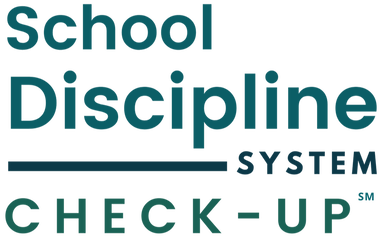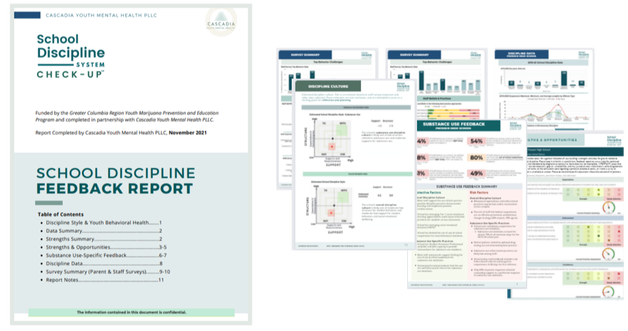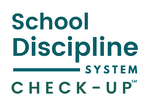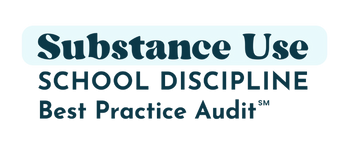School DisciplineConsulting & Technical AssistanceFully funded support available to limited number of schools located in the following WA State Counties: Asotin, Benton, Franklin, Columbia, Whitman, Walla Walla, Yakima, Garfield, and Kittitas
Project offered in Partnership with Walla Walla County Department of Community Health, Youth Marijuana Prevention and Education Program
|
The School Discipline System Check-Up℠ helps middle and high schools:
- Implement research-based changes to building-level practices and procedures for responding to substance use violations, including vaping.
- Take stock of your current school discipline barriers and facilitators for best practice changes.
- Address discipline practices and policies that exacerbate inequities and increase risk for youth substance use.
- Assess and refine the role of school security measures, such as law enforcement and security officers, in school discipline procedures related to substance use.
- Assess strengths, readiness, capacity, and next steps for Restorative Practices.
- Identify vulnerabilities for punitive, permissive, or neglectful discipline practices in your building.
- Access tailored recommendations, meeting facilitation, and facilitated consensus discussions focused on school discipline practice and philosophy.
What's the process?
This school building level project typically takes place over the course of 7-8 months.
Phase One
School Discipline Culture Assessment
Estimated Time to Complete Intake and Phase One: 6 weeks
Estimated Time to Complete Intake and Phase One: 6 weeks
|
Phase Two
Facilitated Feedback & Reflection Sessions
Estimated Time to Complete Phase Two: 4-8 weeks
Estimated Time to Complete Phase Two: 4-8 weeks
|
Phases Three & Four
Facilitated Action Planning & Implementation Support
Estimated Time to Complete Phases Three & Four: 6-12 weeks
|
Frequently Asked Questions
What if my school is already working on MTSS or PBIS?
That is great! This project complements, but does not duplicate or replace, efforts focused on whole school multi-tiered systems of support development or PBIS. This project zooms in on school discipline policy implementation and school-building procedures for responding to substance use and other behaviors that result in the longest average suspensions or removals, and that result in law enforcement referrals. In addition, this project will help your school assess culture and capacity readiness for transforming your discipline system, including readiness for Restorative Practices implementation.
How can my school pay for this project?
In WA State, schools located in the following counties may be eligible for funding for this project through the WA State Dedicated Marijuana Account funding:
North Sound: Whatcom, Skagit, Snohomish, San Juan, Island; and
Southeast: Asotin, Benton, Franklin, Columbia, Whitman, Walla Walla, Yakima, Garfield, and Kittitas Counties.
Other WA state schools may be eligible for funding through partnerships with their CPWI or DFC coalitions.
North Sound: Whatcom, Skagit, Snohomish, San Juan, Island; and
Southeast: Asotin, Benton, Franklin, Columbia, Whitman, Walla Walla, Yakima, Garfield, and Kittitas Counties.
Other WA state schools may be eligible for funding through partnerships with their CPWI or DFC coalitions.
Does this project help us update our School Board Policies?
No, This project is focused on the implementation of new discipline policies at school-buildings. This project does not advise or oversee school board policy change. Many School Boards have already updated, or are in the process of updating, their board policies to reflect new Washington State school discipline laws. For a sample School Board policy that reflects new WA State discipline laws, check out WSSDA’s model Student Discipline Policy 3241/3241P.
We already updated our Board Policies, why should we still offer this project to our schools?
Even when school board policies are updated, school buildings within districts still need to update their procedures and practices. In order to implement the WA State laws and associated School Board policy changes, many schools will require additional support with the implementation of these new policies at the school building-level. This project helps schools assess and develop their capacity to offer alternative discipline interventions that prevent and respond to substance use and promote student behavioral health using best practices. In addition, this project will help your school assess readiness for transforming discipline practices and implementing supportive interventions like Restorative Practices.
I’m part of a CPWI, DFC, or YMPEP group that is focused on updating school policies. Does this project align with that focus?
Yes, this project is an innovative policy, systems, and environments substance use prevention strategy. However, there’s some important language distinctions when working with school discipline policy. What prevention-oriented professionals call “organizational policy” is commonly referred to as “building-level procedure” in a school system. In WA K-12 schools, the word “policies” refers to district-level, School Board approved policies that are reviewed and updated to reflect WA State laws. School-buildings (e.g., Main St. High School) have “procedures” that they can adopt and implement that fit within the confines of the approved School Board Policies. Schools within the same district may have different building-level discipline procedures. How an individual school responds to a substance use violation, what interventions are offered, how students are connected to those interventions, and whether law enforcement is contacted, may all be considered school-building “procedures.” These procedures may potentially vary from school to school within the same district even when school boards have adopted a model school discipline board policy. This is why this project focuses on working with individual school-buildings- as practices, procedures, capacity, and needs can vary greatly from school to school.
Does this project help my school develop Multi-Tiered Systems of Support (MTSS) or Positive Behavioral Interventions and Supports (PBIS)?
No. This project complements, but does not duplicate or replace, comprehensive efforts focused on whole school multi-tiered systems of support (MTSS) development and/or PBIS. In some schools, this project can take place within or alongside a MTSS or PBIS team.
Does this project only focus on substance use policy violations?
No. While this project always focuses on school substance use procedures and practices, it also examines needs and capacity for best practice discipline interventions for other discipline incidents- especially those that have historically resulted in suspensions (except for firearms). The project may also provide more general discipline assessment and recommendations. For example, recommendations may include updating substance use procedures, AND the consultant may have identified a need to more clearly define appropriate reasons for Lunch Detention referrals. In that case, the consultant's recommendations may also include meetings with staff to clearly define when Lunch Detentions are appropriate and identify staff professional development needs. The consultant's ability to provide support with the implementation of recommendations that are not directly related to substance use is limited, but schools may elect how to best use a portion of the consultant's available technical assistance time.
My school already has a Discipline Committee or Discipline Team. How could this help us?
That's fantastic! This project would actually be perfect for your team. This project can provide an outside perspective on your school's strengths and needs as it relates to school discipline practice change. Your team can use the Personalized Feedback Report and Menu of Recommendations to develop or refine your own action plan. You may request additional support after receiving the recommendations, or you may choose to continue on your own! For you, this project will be a true "check-up."
How much time does this require from the school's end?
There's two versions of this project. The Brief version includes the assessment, feedback, and recommendations. The Full version includes the assessment, feedback, recommendations, action planning, and implementation. The Brief version typically requires less than 6 hours from school leadership, including attendance at meetings and project coordination (e.g., compiling and sending discipline data to consultant, emailing staff surveys, etc...). The Full version takes more time, but schools are encouraged to use existing meetings and teams for action planning. Most schools start with the Brief version of the project and can request the Full version after receiving the recommendations if they determine they want to access technical assistance to help implement the recommendations.
District-level projects: In some larger districts with robust and district-wide MTSS, Social-Emotional Learning, PBIS, and Restorative Practices implementation, this project may be available as a district-wide, secondary building project that focuses exclusively on substance use procedure and practice review and updates. Fit for district-level projects are determined on a case-by-case basis.
Potential funding sources for WA State Schools:
- CPWI Coalitions
- Drug Free Communities Coalitions
- Dedicated Marijuana Account funding (Youth Marijuana Prevention and Education program funding).
Youth Marijuana Prevention and Education Program/Dedicated Marijuana Account Project funding currently available for schools located in the following WA counties:
Whatcom, Skagit, San Juan, Island, Snohomish, Asotin, Benton, Franklin, Columbia, Whitman, Walla Walla, Yakima, Garfield, and Kittitas.
Whatcom, Skagit, San Juan, Island, Snohomish, Asotin, Benton, Franklin, Columbia, Whitman, Walla Walla, Yakima, Garfield, and Kittitas.
The School Discipline System Check-Up℠ is a strategic consulting program created and offered by Cascadia Youth Mental Health PLLC (DBA Transform Discipline). The program is research-informed, and based on clinical and research expertise in child and adolescent behavioral health promotion and substance use prevention and intervention, school-wide social-emotional and behavioral interventions, equity in discipline, prevention science, and implementation science in school policy and practice change. In addition to updating school substance use discipline policies and procedures, this project aims to uncover and enhance organizational readiness for evidence-based school discipline reform and youth behavioral health promotion strategies in schools.







